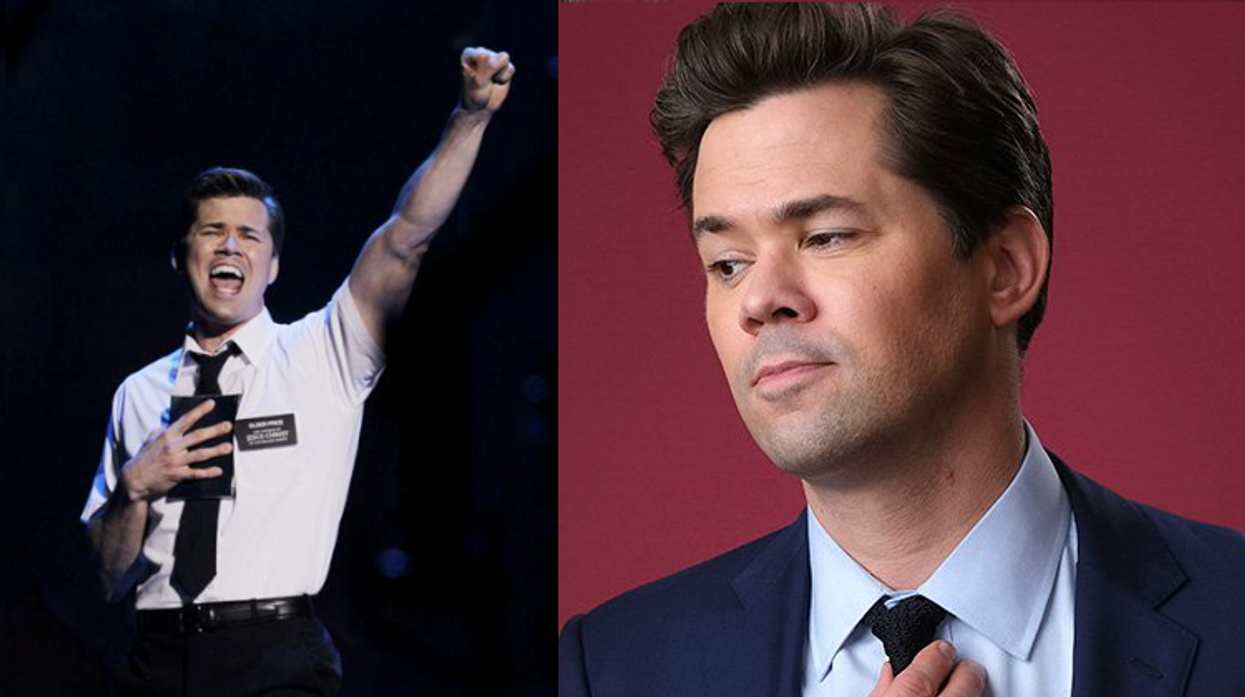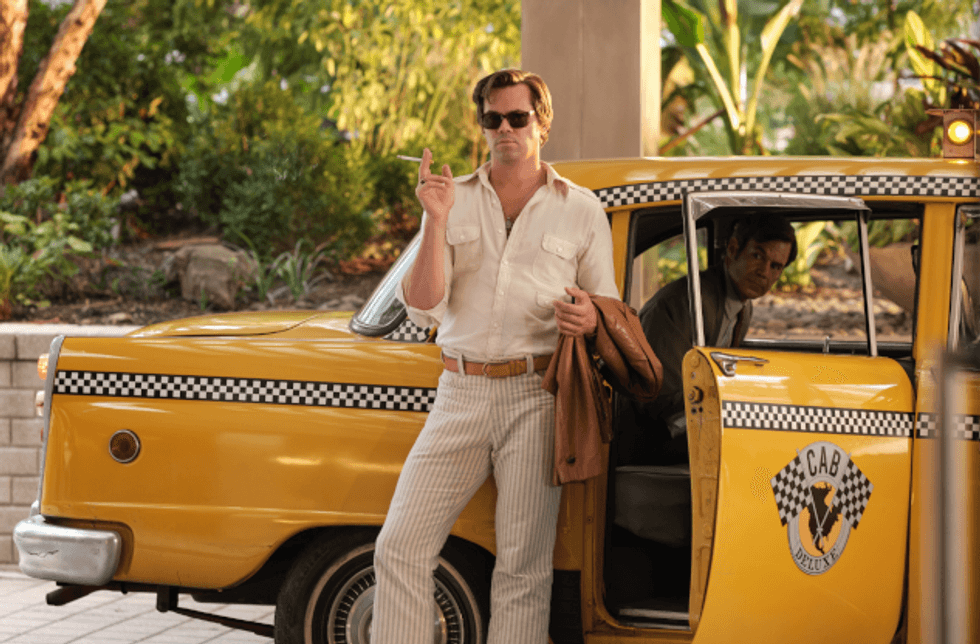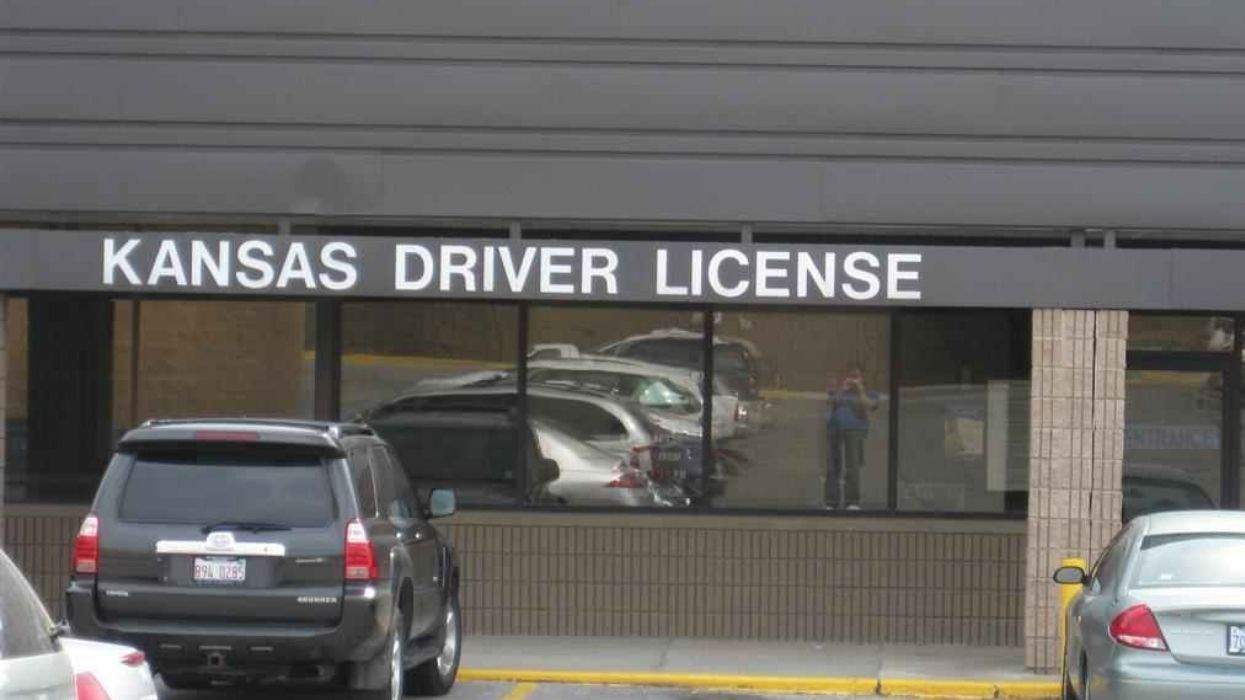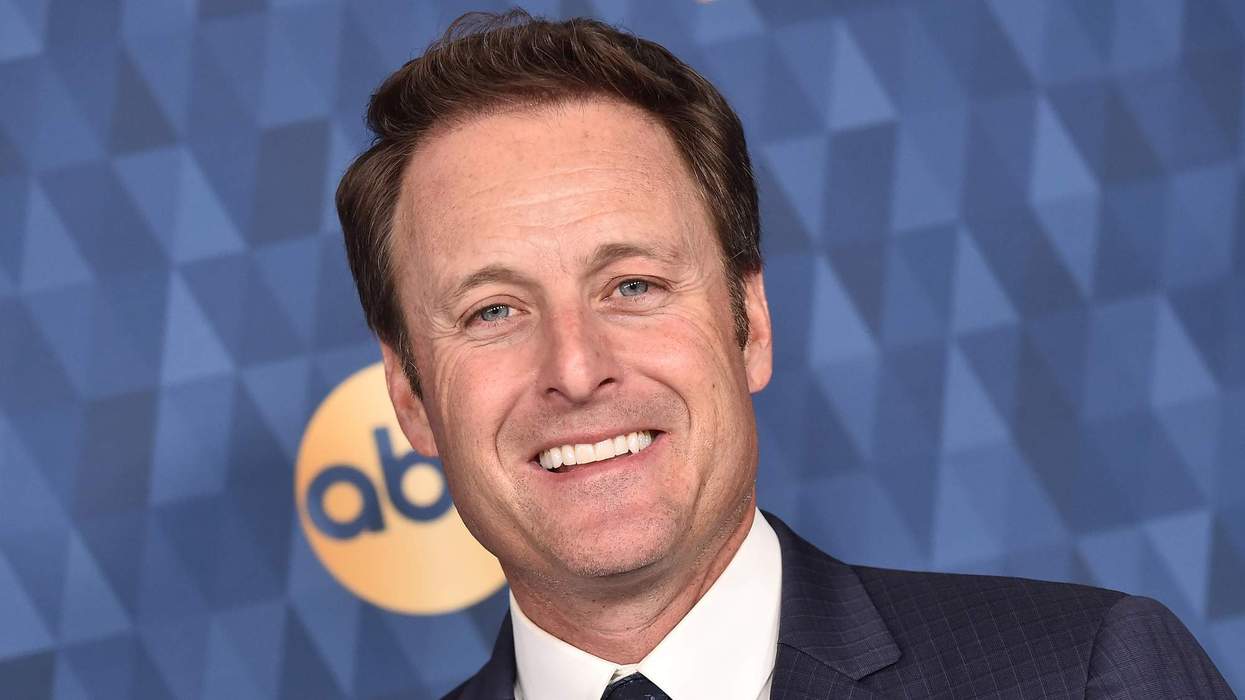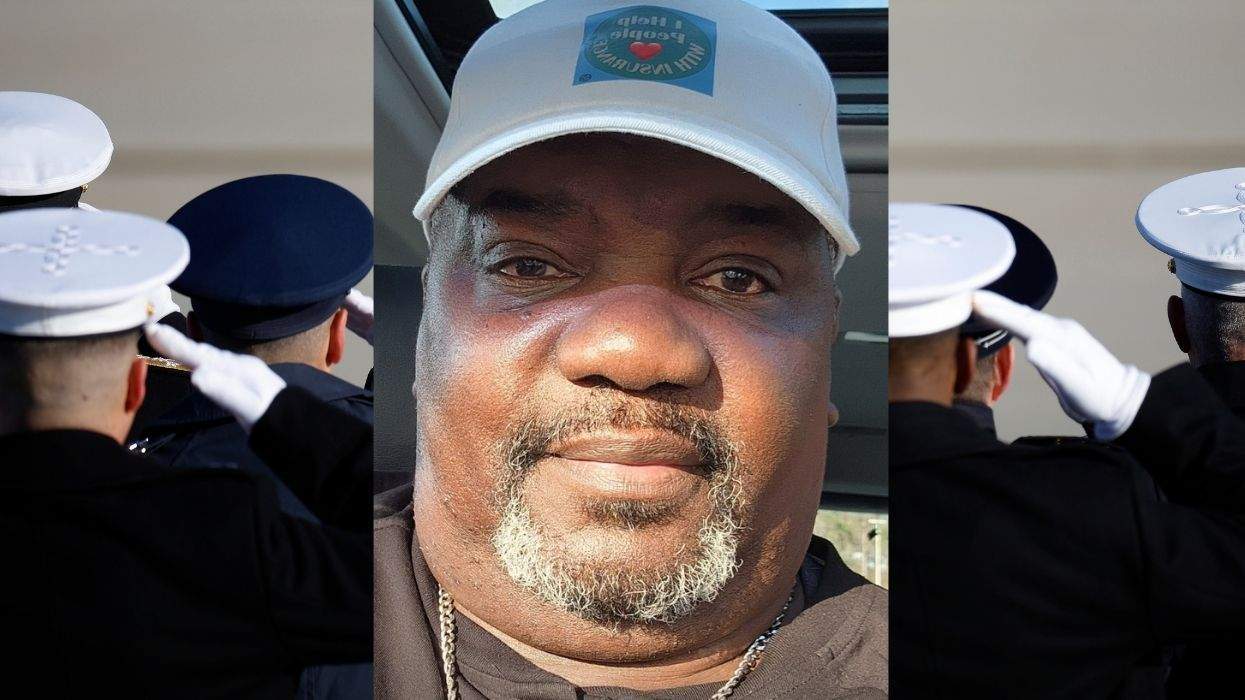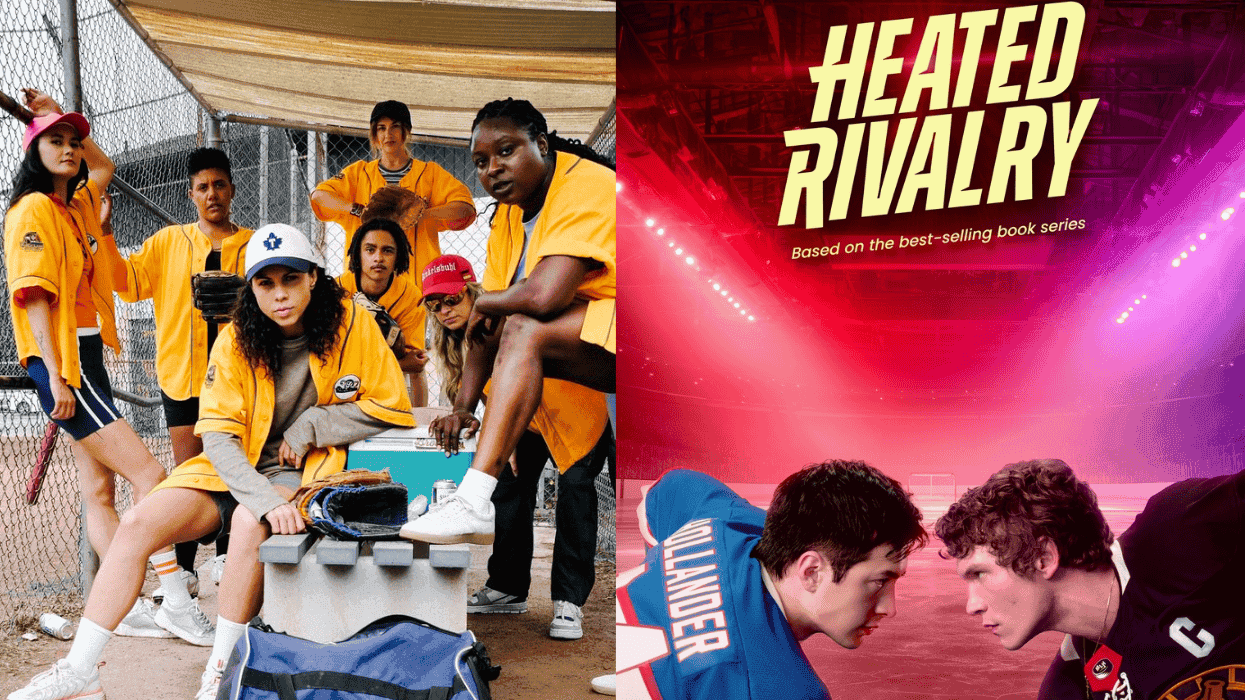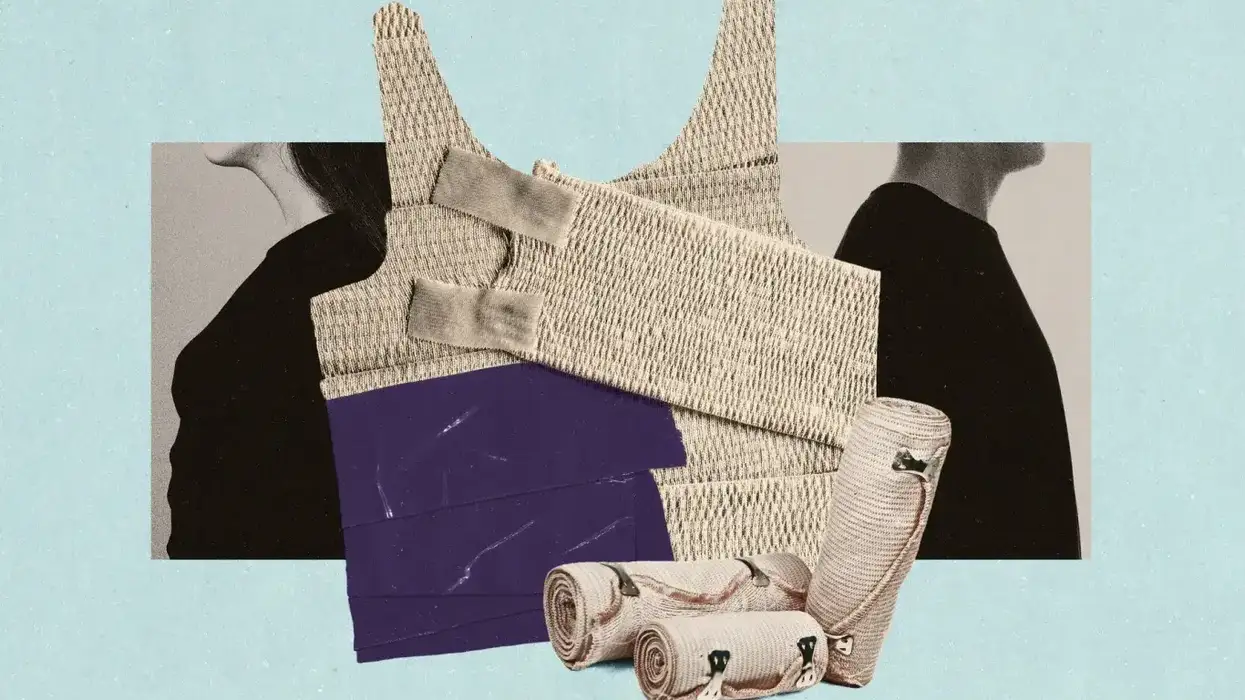Andrew Rannells, the Tony-nominated actor currently starring in Black Monday on Showtime, was having dinner with a man when his sister called. This was about 20 years ago when we were less attached to our phones, when our phones were just phones, not cameras and computers and maps of the world, so he sent her to voicemail.
The date was going fine, good enough for Rannells to invite him over after dinner, but nothing remarkable enough to warrant a chapter in his memoir. Or rather, it shouldn't have until he finally checked his phone and discovered that his father had fallen and was now in a coma. He had to process the news while figuring out how to also navigate his date, the almost-stranger still in his apartment.
The night became a turning point for Rannells. "I just had this moment of reckoning very quickly as I was looking at him and looking at the apartment and being like, All of it is wrong. And you need to start doing things that feel better and that allow you to take better care of yourself," he says on this week's LGBTQ&A podcast. "After my father died a few days later and the funeral happened, I really did re-attack how I was going to go about it because I felt so aimless those first few years I was in New York."
Rannells first shared this story in 2017 in The New York Times' popular Modern Love column, then in his memoir, Too Much Is Not Enough in 2019, and now he's written and is directing an adaptation for an upcoming episode of the Modern Love TV show on Prime Video (premiering August 13).
On this week's episode of LGBTQ&A, Rannells talks about his experience as a first time director, the lasting legacy of The Book of Mormon, and why the story about his father's death continues to connect with so many people.
You can read an excerpt below and listen to the full interview on Apple Podcasts.
Jeffrey Masters: While you were making the transition from Broadway to television, were you ever worried about how your queerness might affect your career?
CB: I maybe did early on, but no. My introduction to being on television was to play two queer characters and two very different queer characters. I felt like I was very lucky with Ryan [Murphy] and with Lena [Dunham] that they were not only writing queer stories and including queer characters, but they were also making them very flawed and multi-dimensional people that were really fun to play, so I felt like I was already benefiting from so many other actors having to be just the gay best friend.
I felt like I arrived on Girls and, yes, technically I was the gay best friend, but she wrote some crazy stuff for me to do.
JM: The Modern Love essay that you wrote isn't the first or only Modern Love essay to deal with death or even the death of a parent. Why do you think it's continued to connect with so many people over the years?
CB: I don't know, but when I was promoting the book, at least two or three in every city would say to me, That happened to me. I remember a couple of women, specifically, telling me, one was lesbian, one was straight, that they had very similar experiences. The specificity of my story is one thing, but I think it gets read and understood in the way that like, life is very messy and no one can plan when that stuff happens.
There's also another element of the essay that's about, I think, figuring out who it is you want to be. A big part of what I learned that night was, at 22, I was living in a sublet in Astoria, this apartment that I did not love. I had a job that I did not love. I didn't really like that guy I was with and I had sex with him anyway because I thought that's what I was supposed to do as a gay adult man. Like, "That's how dates end." And I just had this moment of reckoning very quickly as I was looking at him and looking at the apartment and being like, All of it is wrong. And you need to start doing things that feel better and that allow you to take better care of yourself.
After my father died a few days later and the funeral happened, I really did re-attack how I was going to go about it because I felt so aimless those first few years I was in New York. I think people do relate to that and a lot of people have a moment of reckoning of like, What the hell do I want out of this experience? What am I looking for?
I definitely felt like that was part of the deal, as a man dating at that time. I know it's probably very different for 22-year-olds now. I'm 42 and I would say at that time, that was the expectation, I felt. I think it's probably different now, but in 2001, it was like, This is how we figure it out.
JM: It can feel like you're obligated to engage in casual sex if you're a gay man.
CR: Yeah. It's true. I think that's probably changing for people now. I hope that people feel differently about it. My whole coming out and losing my virginity and all of that was very messy. There's a lot of shame involved and a lot of guilt involved.
I felt like getting to New York a few years later was my chance to restart. There were some good things that happened. I ended up having a very sweet first college boyfriend and it all was what I had imagined it would be. And then some not good ones, but, again, that's life.
Scott Everett White/NETFLIX (c)2020
JM: You're in a relationship with Tuc Watkins, who you met doing The Boys in the Band on Broadway. How common in your dating history have showmances been?
CB: Let me think about this. Yeah, no. It's pretty common. Especially as a theatre actor, you meet people at work. And eight shows a week take up a lot of time. Even when you're not performing, you're often rehearsing and you're spending a lot of time with these people. My first serious boyfriend, I met in a show and then I had an on-again, off-again, casual-ish relationship with somebody when I was doing Hairspray. And then that was it. No, that's not right. Nope. Then the next one, yeah, was in a show. Then the one after that though, not in a show. Yeah, I broke my streak there. And then Tuc was in a show.
JM: The Boys in the Band was celebrated for having queer actors playing all of the queer roles. I've been disappointed that that hasn't set any sort of precedence for casting on Broadway. Since then, we've seen queer shows open on Broadway that featured straight actors playing every single one of the queer characters with any sort of significant stage time. We're back to where we started.
CB: I know, it's interesting. I will tell you, just from a casting perspective, when we were casting Modern Love, and there was a lot of talk among the casting directors and the executives about how important I felt it was to find two queer actors to play these parts.
What I didn't anticipate, now this is going to be a generalization, but actors in their 20s, I think, are not coming out in the same way that my generation of actors came out. It's not that they deflect, it's that they don't want to define it and they don't want a label. And the labels have changed so much in 20 years. I imagine in some of those shows where there was a lot of young people in it, I bet they had a hard time finding guys who would actually nail down a label on their sexuality.
JM: I don't hear that being discussed: when you're in your teens and 20s, you're still figuring things out. It complicates things.
CB: Yeah, I think it can shift and it can change or it can be more defined or refined in some ways. I never had to go through the part of my career where I said like, I would rather not say, or My private life is private. I didn't ever go through that and it didn't really even occur to me. I was 32 when I met Ryan Murphy and met Lena Dunham, and I just felt like, There's no going back now, kid. You've had too many boyfriends in the past to now, all of a sudden, be like, no, I don't want to say anything. They'll show up. Those people will show up.
I just felt like there was no going back. Trey Parker says that he didn't know, it didn't really occur to him when they cast me in The Book of Mormon because it was, I would say, a pretty clinical audition. I came into the room, I did my thing, and then I exited. There was not a lot of chit-chat in the room and, again, they didn't care, but it was funny that it didn't occur to him. I've heard him tell that story before, that he was like, Oh, I didn't really think about it because I was so focused on him doing the material. I didn't think about that like, What is his real life?
JM: It's wild that 10 years later, we're still being asked about The Book of Mormon.
CB: It's pretty nuts that it's still running and still evolving, and that will always be part of my story. Josh Gad and I joke that when we die, in our obituaries it will say, The Book of Mormon, and it probably will say, co-starring Josh Gad, and his will say, co-starring Andrew Rannells. We will be named in each other's obituaries and that show will be a part of it.
Listen to the full podcast interview on Apple Podcasts or Spotify.
Modern Love premiers on Prime Video on August 13.
LGBTQ&A is The Advocate's weekly interview podcast hosted by Jeffrey Masters. Past guests include Pete Buttigieg, Laverne Cox, Miss Major Griffin-Gracy, and Roxane Gay. New episodes come out every Tuesday.
